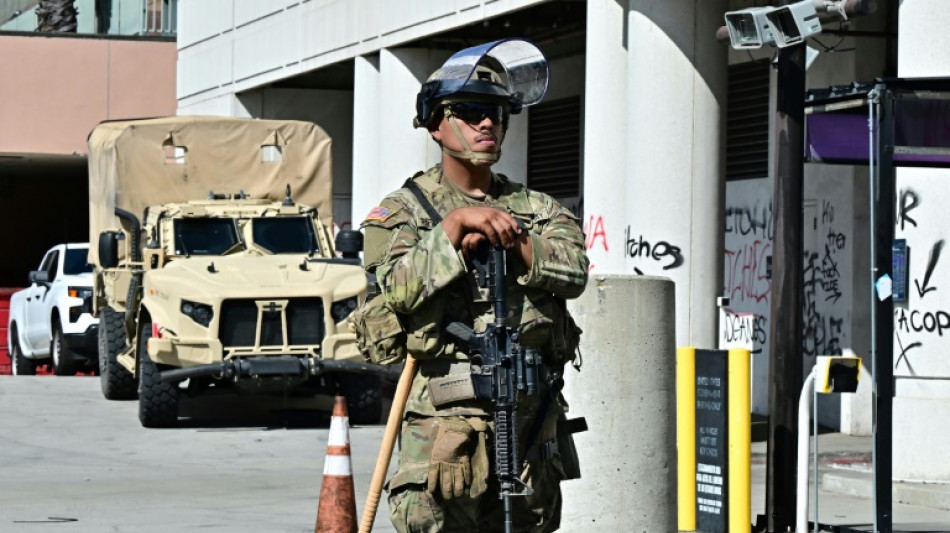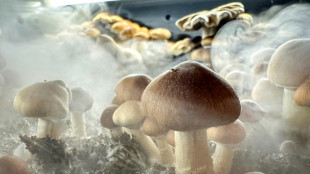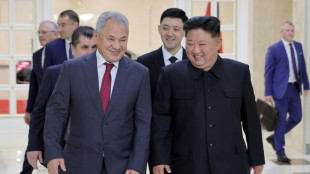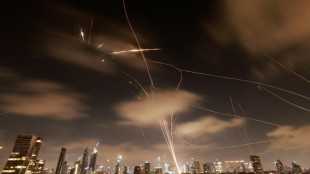

Curfew lifted in LA as Trump battles for control of California troops
Calm appeared to be returning to protest-hit Los Angeles on Tuesday as the mayor lifted a nighttime curfew, while President Donald Trump battled to keep control of California troops he deployed to the city.
A fraction of the sprawling US city had been off-limits from 8pm to 6am to most people for a week after instances of looting and vandalism during demonstrations against Trump's immigration raids.
Los Angeles Mayor Karen Bass said the curfew had been "largely successful in protecting stores, restaurants, businesses and residential communities from bad actors who do not care about the immigrant community."
However, she added that, "as we continue quickly adapting to chaos coming from Washington," she was prepared to reissue a curfew if needed.
Bass and other California officials have accused Trump of inflaming tensions by sending 4,000 of the state's National Guard troops -- as well as 700 Marines -- to the second-largest US city.
In a show of political muscle, Trump ignored the objections of Democratic Governor Gavin Newsom, who would usually oversee the Guard.
A judge said Thursday that the Republican president's actions were "illegal" and ordered that he return control of the force to Newsom.
But a higher court paused that ruling after the Trump administration lodged an appeal and slammed the judge's order as an "extraordinary intrusion on the President's constitutional authority as Commander in Chief."
- 'Extreme measure' -
At an appeals hearing Tuesday, the Justice Department argued that Trump needed to keep control of California's troops to ensure federal immigration officers could carry out arrests without threats from the public.
"Unfortunately, local authorities are either unable or unwilling to protect federal personnel and property from the mob violence ongoing in Los Angeles today," said Brett Shumate, representing the Trump administration.
California officials have rejected that charge, insisting that Trump's use of the military has escalated demonstrations that Los Angeles that law enforcement could have handled.
Samuel Harbourt, representing Newsom and California, pointed out that local authorities in Los Angeles have made around 1,000 arrests during the disorder.
"Are we in a world that's so different from normal conditions as to justify an extreme measure like militarizing the situation and bringing in the National Guard?" he said.
Harbourt urged the San Francisco court to lift the pause on the original order, meaning Trump would have to concede control of the Guard.
"Every day that this order remains in effect it is causing harm for our nation's broader democratic tradition of separation of the military from civilian affairs," he said.
That, he added, "sets a precedent for this president, and future presidents, to take similar actions going forward."
- 'Totally lost control' -
The fatigue-wearing guardsmen have been tasked with protecting federal property in Los Angeles, stationed outside buildings with helmets and large shields.
US law restricts them from arresting citizens, though some guardsmen have fired tear gas and non-lethal rounds towards protesters, according to local media.
It is the first time since 1965 that a US president has deployed the National Guard without the express wishes of a state's governor.
Trump has been unrepentant, taking credit for making Los Angeles "safe" and declaring that Newsom -- a contender for the Democratic presidential nomination in 2028 -- had "totally lost control."
The dispute mirrors multiple other tussles over Trump's attempts to expand the limits of presidential power, but is the first to involve troops.
Like other cases, it could go all the way to the Supreme Court, where conservative judges hold a 6-3 majority.
Many in Los Angeles are angry about immigration raids carried out as part of Trump's ambition to deport vast numbers of undocumented migrants around the country.
Outrage at the use of masked, armed immigration agents has also sparked protests in other cities, including San Francisco, New York, Chicago and San Antonio, Texas.
R.Schmidt--MP



